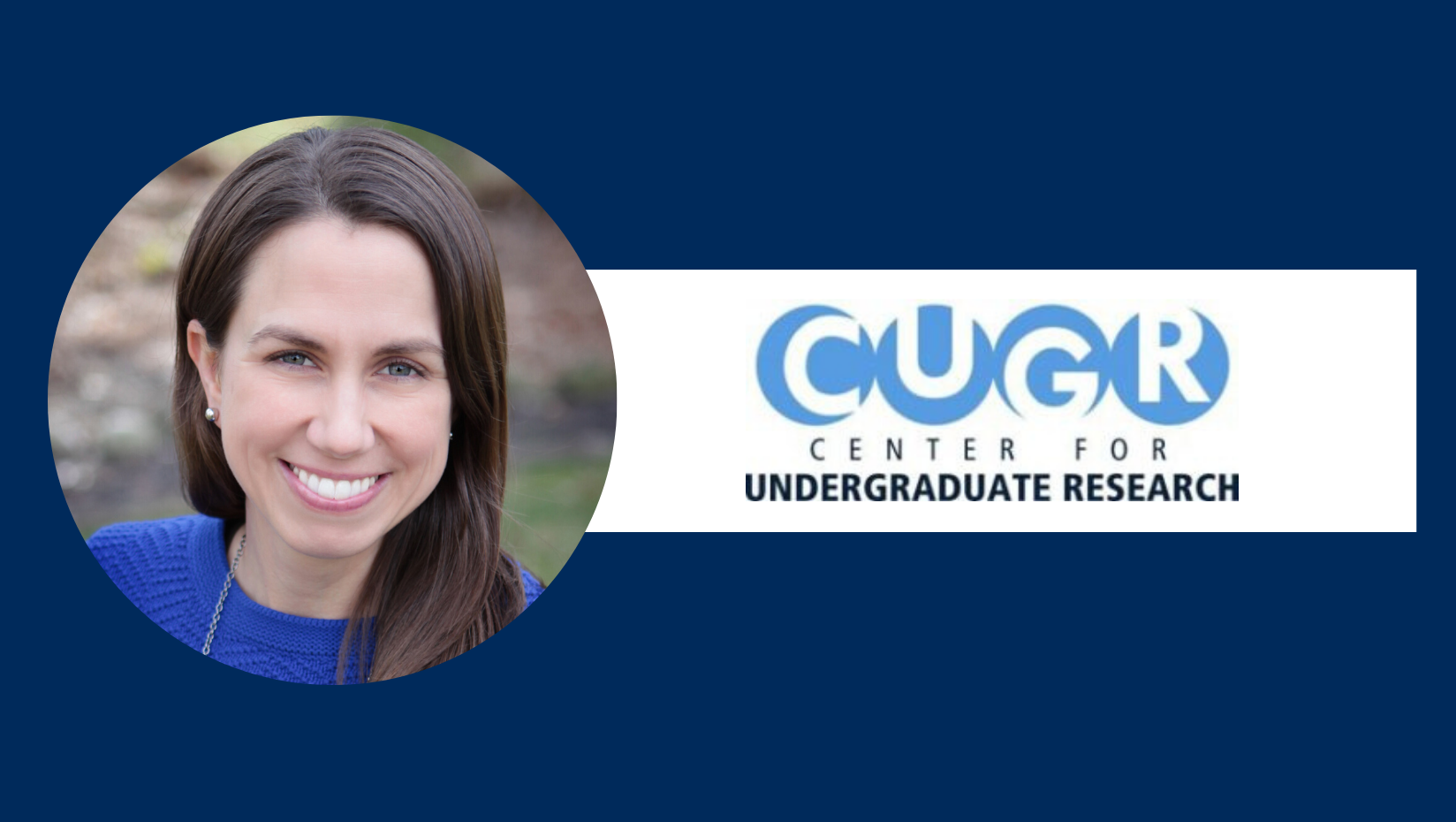
CUGR welcomes Dr. Melissa Maginnis as Associate Director
Dr. Melissa Maginnis has been appointed as Associate Director of the Center for Undergraduate Research (CUGR) effective July 1st, 2020.
“Dr. Maginnis is one of our most active and engaged faculty mentors, with demonstrated high quality research as evidenced by the number of highly competitive awards won by her students”, said Assistant Vice President Abedi, director of CUGR. “We are excited to welcome Dr. Maginnis to CUGR and look forward to further growth of CUGR under her leadership.”
A recently-tenured faculty member in the Department of Molecular and Biomedical Sciences, Dr. Maginnis joined the UMaine faculty in 2014. She is a virologist, and her laboratory is focused on understanding the cellular and molecular basis of viral disease. Defining how viruses recognize and invade cells within the host can ultimately elucidate targets for novel antiviral therapies to prevent or treat viral illnesses.
“My research program is focused on viral disease, a significant human health issue, which also provides excellent student training opportunities,” says Maginnis. “We now all understand the impact that viruses can have on human health and our lives in general due to the COVID-19 pandemic. It is critical that we continue to research viral disease so that we can advance our knowledge in this area to be prepared for future viral outbreaks.”
She has served as the Lead of the UMS COVID-19 Scientific Advisory Board since April to guide a team of UM and USM researchers to provide science-based evidence for the safe planning of the potential future of the UMS.
Dr. Maginnis is an Assistant Professor of Microbiology in the Department of Molecular and Biomedical Sciences at the University of Maine. She was born and raised in Pennsylvania, and earned her B.S. in Biological Sciences from Neumann College, as a first-generation college student. Dr. Maginnis earned her Ph.D. in Microbiology and Immunology from Vanderbilt University and performed postdoctoral training at Brown University.
She teaches undergraduate courses in Virology and the Phage Genome Discovery I course, which is an authentic research-based course for first-year students in which they identify a novel virus from bacteria in the soil and characterize it using experimental methods. She also teaches a graduate course, Advanced Virology and Seminar in Microbiology courses, which focus on science communication.
Through competitive NIH grants and University-sponsored funds, Dr. Maginnis has been awarded over $1M of independent funding while training six graduate students and sixteen undergraduates in her laboratory.
“I am passionate about the pedagogical value of actively engaging students in authentic scholarly activities, and I will continue to promote these student experiences more broadly through my role in the CUGR,” says Maginnis.
The Maginnis Lab’s research findings have been presented from the local scene to international conferences, yielding over 75 presentations and 12 peer-reviewed publications within the past six years.
“I leverage my passion for scientific communication to guide every undergraduate and graduate student in my laboratory through the process of writing research proposals and manuscripts and preparing presentations. These efforts have resulted in successful competition for fellowships and awards resulting in over $75,000 in student-based funding and outstanding training opportunities. Many of these student opportunities have been supported by CUGR.”
Dr. Maginnis is dedicated to teaching undergraduates and graduate students at UMaine and training the next generation of biomedical scientists through experiential learning.
“This position presents an exciting opportunity to engage in fulfilling work driven by my passion for undergraduate research education and commitment to strengthen the research enterprise of UMaine. My passion for education integrates four principles: (1) providing high-quality educational experiences; (2) involving students in experiential learning and enriching creative activities; (3) integrating students into authentic communities of scholarship; (4) generating new knowledge through foundational and applied research. Authentic experiences in research and scholarship prepare our students for the professional setting by fostering the development of core competencies, including critical-thinking skills, communication skills, responsible conduct in research, and personal and professional development. These principles guide the core mission of the CUGR, and I am enthusiastic about the opportunity to support the leadership of this program that is essential to the mission of our University.”
